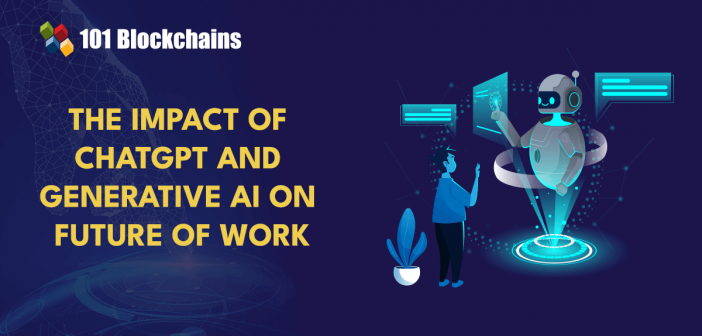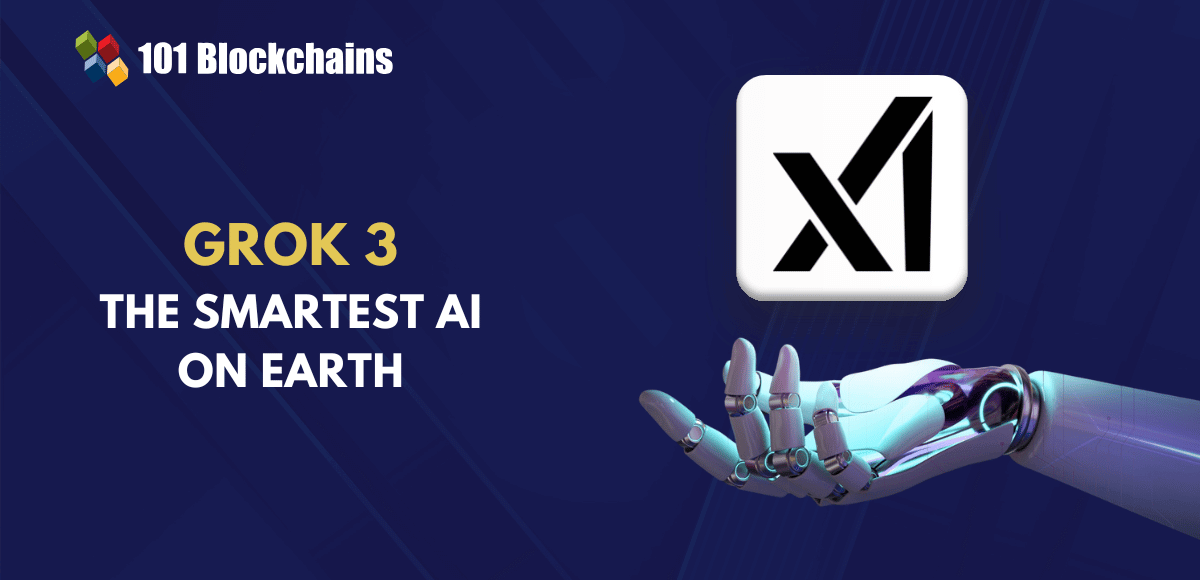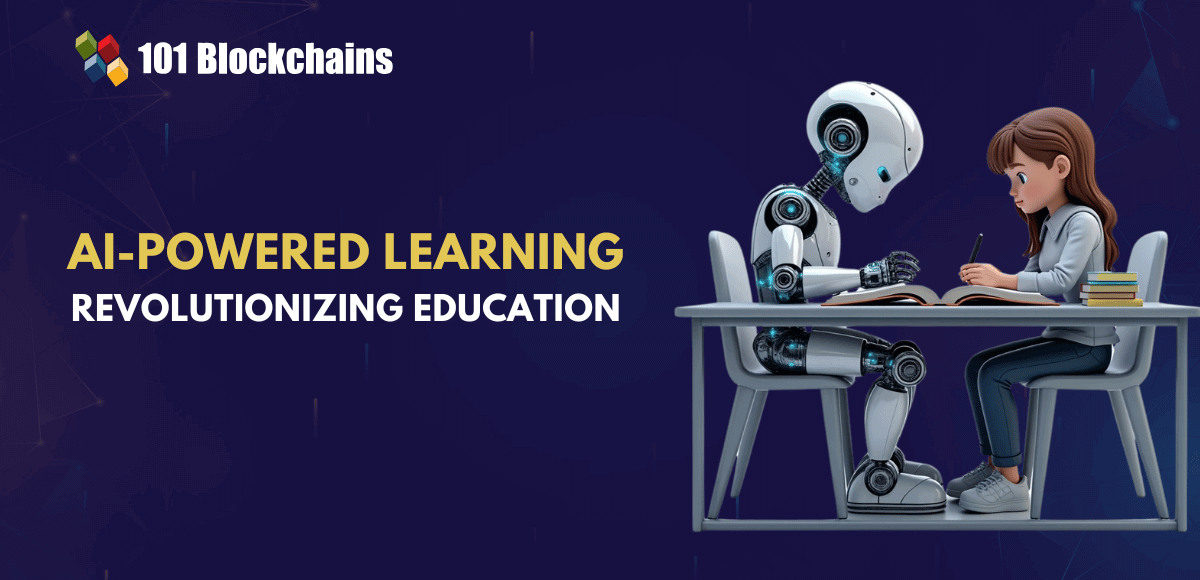Learn how blockchain truly works, master key definitions, and uncover what makes smart contracts so "smart." Dive into the fundamentals, gain valuable insights, and start your blockchain journey today!

AI & ChatGPT
Georgia Weston
on July 31, 2023
How ChatGPT and Generative AI Will Shape the Future of Work
Artificial intelligence has become one of the vital aspects of technology trends across the world. AI has been presenting new approaches for transforming the ways in which people work and live. Interestingly, discussions about the future of work with ChatGPT and generative AI are gradually gaining momentum.
ChatGPT is one of the most popular applications of generative AI, which focuses on generating responses similar to humans for text inputs. Since the introduction of ChatGPT to the public in November 2022, it has had the potential to transform work in different ways.
In January 2023, ChatGPT had more than 100 million users, and the number continues growing bigger with each passing day. Therefore, it is reasonable to think of how ChatGPT and use cases of generative AI could improve workplaces. The following post helps you learn about the impact of ChatGPT and generative AI on work.
How Does the Future of Work with ChatGPT Influence Industries?
The relationship between ChatGPT and the future of work has become one of the prominent trends in the use of AI. Before you find the ways in which ChatGPT could affect the future of work, you should learn about its fundamentals. You should learn how it affects the industry and your organisation.
First of all, you must note that the effect of ChatGPT on different industries could be highly disruptive in nature. Most important of all, the impact of ChatGPT and generative AI on jobs would be clearly evident in specific industries. The industries which use content creation, customer service and communication in their operations would experience disruption due to AI. Healthcare providers can utilize ChatGPT to provide personalized patient care alongside booking appointments.
On the other hand, financial service organizations could utilize ChatGPT to offer personalized healthcare services and flexible appointment booking. Similarly, the review of ChatGPT and Generative AI’s impact on the future of work would also focus on the retail sector. Retail businesses can use ChatGPT to offer personalized product recommendations. At the same time, ChatGPT can also help retail businesses streamline their customer service experiences.
Apart from offering personalized experiences to customers, ChatGPT can help businesses in the automation of recurring tasks. Furthermore, generative AI models can help in freeing up employees to help them focus on productive tasks.
ChatGPT and generative AI can improve productivity and efficiency. In addition, the tools can help in reducing costs and helping companies maintain their competitive edge for years. The review of insights regarding generative AI and the future of work also showcases innovative uses of ChatGPT. For example, it can help in generating new ideas for products and services. It can help companies in fostering innovation alongside boosting their competitiveness.
Want to develop the skill in ChatGPT to familiarize yourself with the AI language model? Enroll now in ChatGPT Fundamentals Course
Effect of ChatGPT and Generative AI on Organizations
The industrial impact of ChatGPT and generative AI provides a brief impression of the important factors underlying their potential for changing the future of work. One of the first areas to be affected by ChatGPT points at the marketing department.
Generative AI can help in creating product descriptions, promotional copies and social media content for marketing teams. The responses for ‘how ChatGPT could change the future of work‘ on an organizational level would also highlight its role in analyzing customer feedback. ChatGPT and generative AI can help companies in evaluating customer feedback and sentiment to obtain relevant insights.
It also works on improving marketing strategies alongside empowering marketing departments. Generative AI also has the potential to revolutionize the approaches businesses follow for communicating with their customers.
ChatGPT could also support HR departments in the automation of the hiring process. The future of work with ChatGPT and generative AI would feature higher efficiency by scheduling interviews. Generative AI could also provide a valuable resource for figuring out important information about a company.
The sales department of an organization can use ChatGPT and generative AI to improve the efficiency of lead generation. At the same time, the sales department could also leverage ChatGPT to answer the complicated queries of customers.
Take your first step towards learning about artificial intelligence through AI Flashcards
Impact of ChatGPT on the Consumer and Culture
The other two important aspects you need to study for determining the impact of generative AI on the future of work would refer to the consumer and culture. How will ChatGPT affect your customers? The insights on ChatGPT and the future of work draw references to the possibilities of transforming the ways in which companies engage with their customers.
ChatGPT and generative AI could help in providing 24/7 customer service alongside offering personalized recommendations. Therefore, ChatGPT and generative AI could provide new milestones for improving customer experiences by delivering better service and instant responses. Most important of all, ChatGPT can also support organizations in evaluating customer feedback to learn how they feel about the products and services.
The next noticeable highlight in discussions about ChatGPT and generative AI’s impact on the future of work would point out how they would change organizational culture. What are the two critical elements of a company’s culture? The answer would point you towards knowledge and communication. ChatGPT and generative AI have a formidable impact on these two elements, thereby suggesting how they can influence company culture.
Excited to learn the fundamentals of AI applications in business? Enroll now in the AI For Business Course
What are the Popular Use Cases of Generative AI?
The potential of generative AI and ChatGPT for transforming the future of work would also draw attention towards their use cases. You can find two broad cases for generative AI and ChatGPT, which would majorly influence the work environment. First of all, the impact of generative AI and the future of work would point towards content generation. Subsequently, you should also pay attention to generative AI use cases in extracting, summarising and predicting information.
The use cases of content generation with ChatGPT and generative AI would not focus only on generating text, such as creating marketing copies or emails. Content generation with ChatGPT also focuses on creating videos and images. Generative AI can also help in the conversion of content from one mode to another, such as converting an audio file to a video. For example, paralegal experts have used AI tools to generate standard contracts and NDAs.
The second use case of ChatGPT and generative AI, i.e. extraction, summary and prediction of information, deals with the manipulation of existing text or information. For example, business owners could obtain a quarterly report summary or a meeting.
The outline of the impact of ChatGPT and generative AI on jobs also points to the use cases of creating chatbots, which you can train on all relevant customer issues. Furthermore, generative AI also offers promising results with associated listening use cases.
Organizations can encourage employees to share their concerns and new ideas without restricting their abilities for expression. Subsequently, AI models could evaluate and connect the dots in employee feedback to obtain actionable insights and recommendations.
Become a master of generative AI applications and develop expert-level skills in prompt engineering with Prompt Engineer Career Path
Risks with the Implementation of ChatGPT and Generative AI in Work
Generative AI can provide exclusive improvement in productivity alongside encouraging creativity for performing routine tasks. On the other hand, it is still new territory for business leaders, and even AI experts are not sure about the potential applications of ChatGPT and Generative AI.
As a matter of fact, experts believe that experimentation of generative AI in real-world settings enables the emergence of specific use cases. Therefore, answers to ‘how ChatGPT could change the future of work‘ would also require a clear impression of its risks for users and business owners. The following risks of generative AI would play a crucial role in determining the ideal approaches for the adoption of generative AI.
-
Hallucination Issues
The first thing you would note about generative AI is the fact that they are ‘human-like’ and not ‘human’ in nature. Therefore, you are most likely to encounter issues of human awareness. For example, the generative AI models don’t know how to lie consciously. Therefore, they are more likely to make things up and describe them as facts to the users with clear explanations. Such types of ‘hallucinations’ by generative AI models and ChatGPT could be one of the biggest risks for users.
-
Numerical Reasoning
The functionalities of generative AI tools explain their role in the manipulation of texts, videos and images. It is also important to note that the capabilities of generative AI models have not developed to an advanced extent. Experts have pointed out that generative AI models and ChatGPT have not included any form of mathematical operations, including simple arithmetic and advanced numerical reasoning. You would need humans in the loop to verify the results produced by generative AI models.
Want to understand the importance of ethics in AI, ethical frameworks, principles, and challenges? Enroll now in the Ethics Of Artificial Intelligence (AI) Course
-
Copyright and IP Risk
The ownership of data generated by AI models is one of the prominent concerns for using generative AI in the future of work. Applications of ChatGPT and the future of work would exist in harmony only by resolving the concerns of IP conflicts. The risks in the adoption of ChatGPT for future workplace environments, with respect to copyright and IP challenges, are a prominent concern in adopting generative AI.
-
Privacy Risks
The risks of privacy are a critical problem in using AI tools for creating code. You can find multiple companies that have withdrawn from using chatbots, such as ChatGPT. What is the reason behind the withdrawal of companies from the adoption of generative AI and ChatGPT? Apparently, the companies believe that ChatGPT could expose their own code. Similarly, companies also assume that unverified code created by ChatGPT and generative AI models could also affect their productivity and efficiency.
Understand the true potential of generative AI and become an expert with the Generative AI skill path
What are the Best Practices for Implementing Generative AI?
The massive potential of ChatGPT and generative artificial intelligence for the future of workplace environments is visible in its features. On the other hand, best practices for changing the future of work with ChatGPT and generative AI can help you. The best practices can support business owners in finding effective ways to adapt to the future of work.
Industry experts believe that the implementation of ChatGPT and generative AI would also consider the risks. You should notice that the adoption of ChatGPT and generative AI in workplaces would depend on experimentation. Therefore, organizations should prepare their workplaces to embrace innovation and open-ended exploration of new technologies.
In the case of managers, the answers to ‘how ChatGPT could change the future of work’ would point to describing AI as an opportunity. You should tell your employees how generative AI and ChatGPT could help in reducing the load of recurring tasks.
On the other hand, managers must also help employees view their job role from a new perspective. The applications of generative AI and ChatGPT also help in boosting skill development initiatives with limited efforts and investments.
Managers should encourage employees to use ChatGPT and generative AI tools to overcome their apprehensions about the tool. Experts have pointed out that managers should guide their teams using AI tools for tasks they hate. Managers should present ChatGPT and generative AI as tools that simplify workers’ most troublesome tasks. Therefore, it would help employees avoid the apprehensions regarding AI replacing their jobs.
Most important of all, you can play a crucial role in strengthening the impact of ChatGPT and generative AI on jobs without serving in a leadership position. Employees can reflect on the different competencies they want to develop in their desired career path. At the same time, teams could also find out the dependencies between different asks, which could affect the adoption of new technologies.
From the perspective of individual employees, the adoption of ChatGPT and generative AI models in the future of work would be purely based on experimentation. You can find your capabilities for using such tools by experimenting with them and identifying your weaknesses and strengths.
Want to learn how AI and Fintech disrupting finance careers? Join Premium Plan and watch our on demand webinar on How AI And Fintech Are Disrupting Finance Careers!
Final Words
You can notice that the discussions about how ChatGPT could change the future of work revolve around the lack of awareness about the new technology. Generative AI models serve a different take on artificial intelligence applications in professional workplace environments. At the same time, ChatGPT and generative AI have multiple limitations you must take into consideration before using them. The benefits of generative AI for the future of work would provide a new direction for managers, employees and business owners. Learn more about ChatGPT fundamentals and find out how generative AI could introduce a new wave of transformation in workplace environments.






